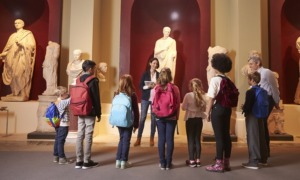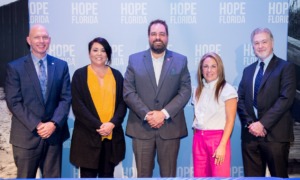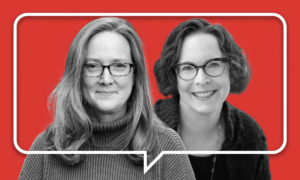Parent, Teacher, Mentor, Friend: How Every Adult Can Change Kids’ Lives
Peter L. Benson
Search Institute Press
198 pages.
“Society does not have a youth problem,” declares Peter Benson. “It has an adult problem.”
As founder and CEO of Search Institute, Benson uses decades of its research on children and adolescents to support this contention. Although a recent international study of youth ages 12 to 25 shows that 80 percent share such laudable life goals as making the world a better place, their chances of achievement are undermined by a disturbing lack of adult support.
Search Institute’s well-known framework of 40 Developmental Assets – which Benson calls nutrients for young people’s success – includes nine assets that involve adult support. Among more than 3 million youths surveyed by Search Institute over the years, 68 percent have family support, 43 percent report adult relationships outside their families, and 37 percent know caring neighbors. Other assets involving adults in schools and communities are reported by only 22 percent to 29 percent.
When 2,000 adults in a Pennsylvania community gathered to hear results of such a survey of their 3,000 middle and high school students, the senior class president told the truth: “You don’t know us, many of you are afraid of us, and when you pass by on streets, you scurry by us. You don’t know how to slow down and talk to us, and you are so much more fascinated by our problems than our successes.”
To repair such disconnections, this small paperback provides adults with a blueprint for building a strong “web of support” for youth. The web’s five rings progress from brief interactions to larger projects suggested in each ring’s own chapter, including lively accounts of actual interactions between adults and youth. Each chapter ends with 30 Ideas for Action.
Benson emphasizes that most young people “are transformed by the everyday, routine things adults do,” from asking for opinions to offering praise. One woman in a Colorado senior housing complex mobilized its 500 residents to “make eye contact and smile” whenever they encountered a youth while shopping or walking. Teenagers noticed; such acknowledgments became commonplace throughout their town. Like these seniors’ smiles, every action in the first chapter can be done “in 30 seconds or less.”
The second chapter’s actions build meaningful connections, from texting an encouraging message to inviting a young person on a bike ride. The next chapter focuses on building lasting relationships, as did sixth-grader John’s mother, who asked friends who walked with John to school if they’d had breakfast, and ended up serving pancakes every Friday morning to as many as 25 eighth-graders.
The last two chapters shift from personal relationships to advocating for all youth. Be the citizen, Benson urges, who asks, when a new government policy is proposed: “Is it good for kids?” The final chapter about big changes opens with the memorable account of a Texas middle school principal who posted all 1,000 students’ names on the gym wall, asking school staff to place gold stars beside names of students they knew well. The discovery that half the students received no stars prompted the rebuilding of staff-student relationships and dramatic improvement in student performance. Other startup ideas include clubs, scholarships, blogs, job fairs, and running for office.
Benson appeals to every adult to get involved with youth according to his or her time, ability and inclination, in a variety of ordinary settings. This rich array of meaningful actions could convince many to make life-changing connections with young people. (800) 888-7828, www.search-institute.org.






























